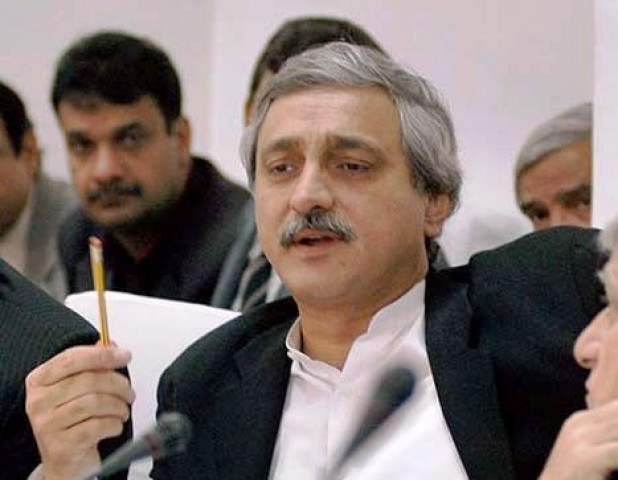Where is proof of land holding, SC asks Tareen
Raises questions over PTI leader’s 18,566 acres of leased land

PTI General Secretary Jahangir Tareen. PHOTO: APP/File
During the proceedings, Tareen’s counsel Sikandar Bashir submitted affidavits of the landlords and lessors.
However, Chief Justice of Pakistan Mian Saqib Nisar, heading a three-judge bench, said the affidavits are of no use without supporting revenue department documents.
"Where is the proof that you hold 18,566 acres,” the CJP asked Tareen's counsel who contended that the affidavits were backed by crossed cheques through which payments were made to the lessors.
Petition against Tareen: Judge urges SC protection for taxpayers
The chief justice stated that crossed cheques would have no meaning at this time, but would be relevant after the revenue record became available.
The counsel told the court that Tareen had been an agriculturist since 1978, and his farms were producers of high-quality sugarcane, mangoes, cotton, and chilli peppers. He added that in 2002, his client set up Jamal Din Wali Sugar Mills in Sadiqabad.
The chief justice observed that Tareen had explained his agricultural income in his income tax return, but not the income from the leased land.
“There is a difference between the statements submitted before the Election Commission of Pakistan and the income tax return,” the chief justice said.
The court then asked Tareen’s lawyer about a proof of possession for the 18,566 acres of leased land.
The chief justice questioned whether the affidavits were registered.
Justice Umar Atta Bandial said there were no revenue department records for the leased land and he further questioned whether the lessors were the owner of the land.
The chief justice asked whether there was any landownership, adding that mutation records would show how much land was in possession of the owners, and what crops were cultivated at what time.
Tareen’s counsel argued that every penny paid was through cheques.
The chief justice told him that they did not want to comment on anything at this stage as that might prejudice the case. He directed him to procure the harvest inspection records, called khasra girdawari.
To this, the counsel said that he would obtain all land documents from revenue records.
PML-N leader Hanif Abbasi’s counsel, meanwhile, claimed that Tareen had failed to produce these document before the authorities which had been hearing his land cases for the last four years.
The chief justice said that if required, they might summon revenue department officials for verification of the documents.
The counsel replied that the court could verify the documents independently, adding that physical land record documents were often not available in pristine condition.
He referred to the Punjab Income Tax Ordinance 1997 and said there was no institutional framework for collecting, determining, assessing and recovery in that law.
Tareen given 10 days to submit documents in disqualification case
Justice Bandial then asked if he wanted to say that on the basis of the Punjab law, whatever land was in Tareen’s holding had been declared in his tax returns. The counsel replied that his client had been accused of fiddling with the matter, while he had done no such thing.
At the outset of the case, Abbasi’s counsel Akram Sheikh argued that the case had started in November last year and after 10 months, documents were still being filed.
He said he had not come across any similar example, except in the Asghar Khan case, where documents were being filed and a judgment was announced after 16 years.
With reference to the related Imran Khan case, he said the PTI chief was now raising new issues like payment of GBP76,000 for architecture. The hearing was later adjourned till Wednesday (today).



















COMMENTS
Comments are moderated and generally will be posted if they are on-topic and not abusive.
For more information, please see our Comments FAQ